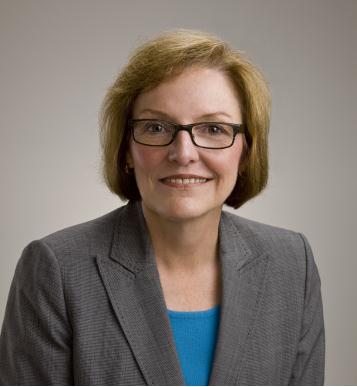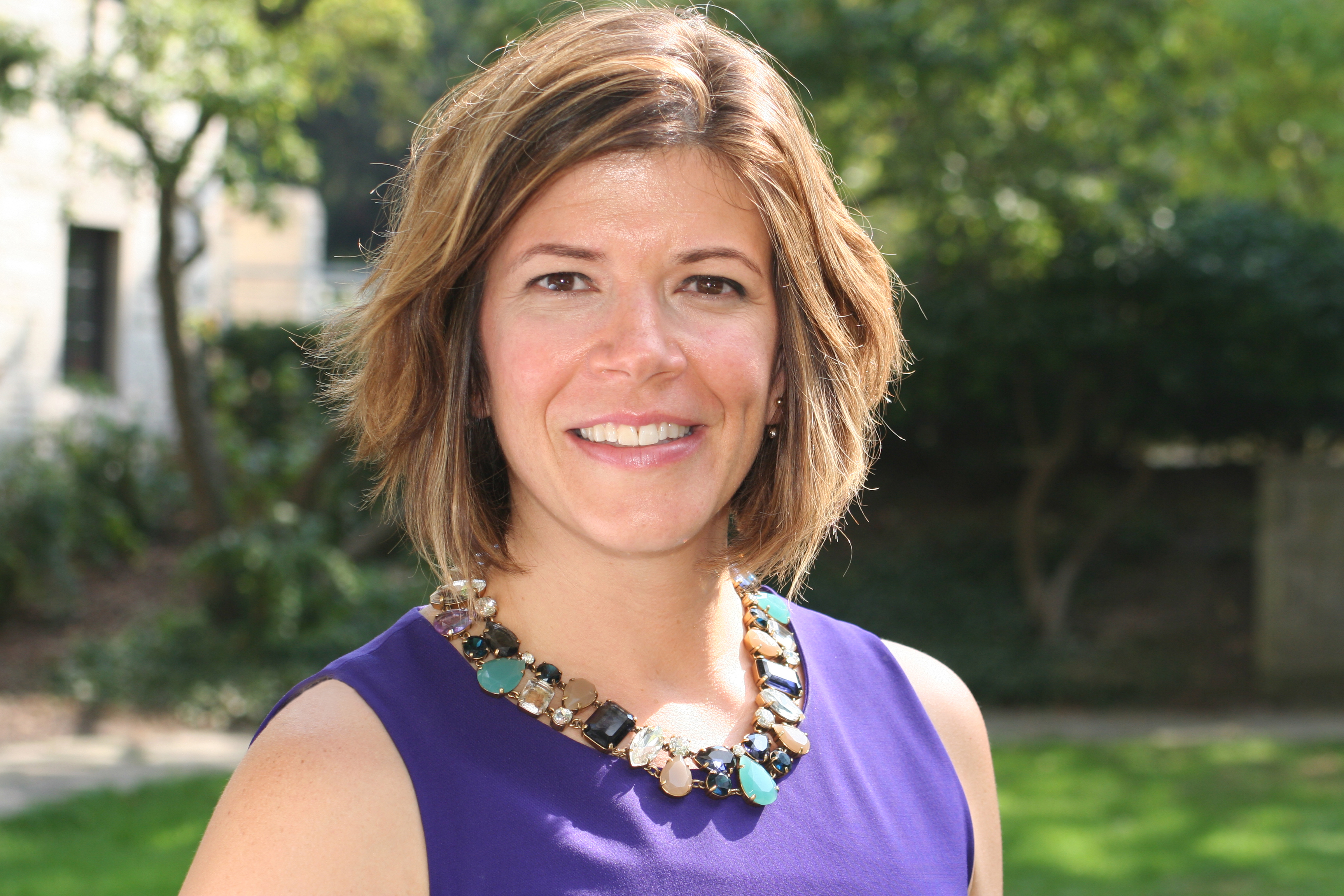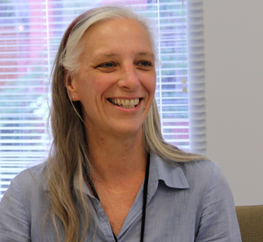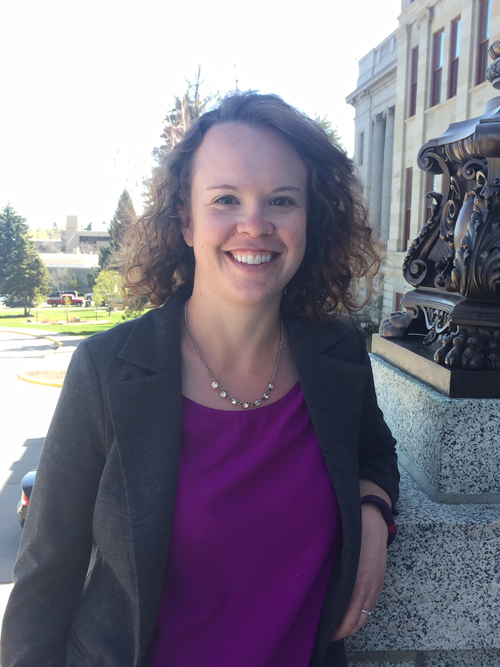Presenter Bios

Scott Adams, Department of Economics, University of Wisconsin-Milwaukee
“An Assessment of Various Measures to Curb School Violence”Scott Adams is professor and chair of the Department of Economics at the University of Wisconsin-Milwaukee and an adjunct professor at the Medical College of Wisconsin. His research analyzes public policy in the areas of education, health, and labor. Current projects include the implications of electronic cigarette sales and regulations on conventional cigarette consumption and maternal and child health. He is also investigating various aspects of school shootings, particularly with an emphasis on how such events may affect the community in which the shootings take place. Past work has been featured in the Economist, Atlantic, Mother Jones, and the Wall Street Journal. Adams received his PhD from Michigan State University and was a Robert Wood Johnson Scholar in Health Policy Research at the University of Michigan. In 2008-2009, he served as senior economist for education and welfare for the Council of Economic Advisers in both the Bush and Obama Administrations. Currently, he is a co-editor of the Journal of Economic Behavior and Organization.

Stephanie Aragon, Educational Commission of the States
“National Overview: Addressing Ongoing Shortages Through State-level Policymaking”?
Stephanie Aragon is a policy analyst at the Education Commission of the States, where she oversees the research, publications and support provided to state education leaders working to strengthen teacher pipelines. Her written work—on topics related to teacher recruitment, evaluations, development and advancement—has received national acclaim and been featured by EdWeek, Chalkbeat, T74 , Medium, and EducationDive, among other outlets. Stephanie travels across the country to present ECS’ research to state policy leaders and peer organizations. Stephanie has participated as a national collaborator and consultant on teacher policy work for the Council of State Governments, the Council of Chief State School Officers, and the National Board for Professional Teaching Standards. Stephanie earned a bachelor’s degree in political science from the University of Colorado, Boulder and a master’s degree in public policy/education policy from the University of Denver.

Helen Ladd, Duke University
“The Hidden Costs of Teacher Turnover” and “Value-Driven Approaches to School Funding ”Helen F. Ladd is the Susan B. King Professor Emerita of Public Policy Studies and Economics at Duke University. Most of her current research focuses on topics in education policy including school accountability, parental choice and market-based reforms, charter schools, school finance, and teacher labor markets. With colleagues at Duke she has explored the relationship between teacher credentials and student test scores, the effects of accelerating algebra, school segregation, and the effects of early childhood initiatives. She is co-editor of The Handbook of Research on Educational Finance and Policy (Routledge, 2008 and second edition, 2015), the co-author of books on school choice in New Zealand and school reform in post-apartheid South Africa, and most recently of Educational Goods: Values, Evidence and Decision-Making. She is a past president of the Association for Public Policy Analysis and Management and a member of the National Academy of Education.

Jayne Downey, Montana State University
"Rural Teacher Recruitment and Retention: The Importance of Context"
Jayne Downey is an associate professor in the Department of Education and serves as the Director of the Center for Research on Rural Education at Montana State University. Her academic background is in the domain of Educational Psychology with a specific focus on the nature of learning and learners, the characteristics of effective teaching, and the contextual factors that influence the teaching and learning process. She has worked in the field of educator preparation for 20 years and her research agenda is focused on strengthening the preparation of prospective teachers and improving outcomes of P-20 education across rural contexts.
Dr. Downey serves as the chair of the Board of Directors for the Montana Small Schools Alliance working on behalf of 140 of Montana’s smallest rural and remote schools. She is an editor for the Australian and International Journal of Rural Education, co-leader of the Rural Education International Research Alliance, and recently hosted the International Symposium for Innovation in Rural Education 2018, which convened 125 rural educators and researchers from around the globe to celebrate the importance of rural education and explore how research can inform rural practice.

Roberta Evans, University of Montana
"Are Rural School Funding Disparities Offset by Extraordinary Educational Experiences?"
Roberta (Bobbie) Evans is the William C. Shreeve Chair in Educational Leadership and professor in the Department of Educational Leadership at the University of Montana's Phyllis J. Washington College of Education and Human Sciences. Evans has experience in high school teaching and administration, as well as tenure-track faculty roles and university administration within colleges of education. She brings 27 years of experience to her current research of agile leadership, including decision-making by superintendents and academic leaders seeing their organizations through a lens imposing a mindset of scarcity. She has chronicled the use of judgmental analysis in participatory leadership teams, exploring simple tests for agility in leadership groups purporting to value diverse insight at points of decision. Having been dean with a dynamic leadership group that met vital benchmarks in enrollment, retention, and capitol philanthropy, Evans recently returned to the classroom to share her research and evidence-based approach to problem-solving with educational leaders in both pK-12 and post-secondary institutions, primarily in the U.S. but also across the globe. Her background includes service in Education Northwest, where she was chair of the board, Deans with Impact, S-BAC representation/implementation, educator performance assessment, co-founder of the Montana Digital Academy, service on the OneMontana and MontanaPBS Boards, conference chair for the American Academy of Achievement, and the initial steering committee for Montana's Rural Initiative. She is an inducted fellow in the International Academy for Educational Leaders.

Luis Huerta, Columbia University
"Beyond Equity: A Framework for Understanding the Relationship Between Resources and Student Outcomes"
Luis Huerta is an associate professor of education and public policy at teachers College-Columbia University. He holds a Ph.D. in education policy from the University of California, Berkeley. He teaches courses in policy analysis and implementation, school finance and organizational sociology. His research and scholarship focus on school choice reforms and school finance policy. His research on school choice reforms examines policies that advance both decentralized and market models of schooling—including charter schools, vouchers, tuition tax credits, homeschooling and virtual schools. His research also examines school finance policy and research, with a specific focus on how legal and legislative battles over finance equity in schools and the research which has analyzed the effects of resources on student achievement, have consistently overlooked how resources are used within schools.
Prior to joining the Teachers College faculty in January of 2002, he served as a research associate and coordinator for K-12 education policy research for Policy Analysis for California Education (PACE). He also served as a California public school teacher for six years. He is the author of recent articles on school choice and school finance published in Educational Policy, Journal of Education Finance, Teachers College Record, Peabody Journal of Education, Journal of Education Policy and Phi Delta Kappan. In addition, he served as an expert witness on school finance policy in the Williams et al. v. State of California case, and as an expert consultant on the Campaign for Fiscal Equity (CFE) v. State of New York case. His research and commentary have been featured widely in the national print media, including The New York Times, The Wall Street Journal and Education Week. Lastly, he recently served as co-editor of the journal Educational Evaluation and Policy Analysis.

Jessica Anderson
"Technology Innovation for Beyond the Classroom"
Jessica Anderson, the 2016 Montana Teacher of the Year, is an award-winning science teacher working as a virtual instructional coach at BetterLesson. She is passionate about supporting educators with the meaningful implementation of blended and personalized learning practices, particularly in science education. As an educator who designed a self-paced science classroom within a traditional school setting, she understands the challenges and barriers that educators encounter when shifting their practice and loves the reward of helping educators make these instructional shifts.

Diane Schanzenbach, Northwestern University
“The State of School Finances and Their Impacts”
Diane Schanzenbach is an economist who studies policies aimed at improving the lives of children in poverty, including education, health, and income support policies. She is also the director of the Institute for Policy Research. Her recent work has focused on tracing the impact of major public policies such as the Food Stamp Program and early childhood education on children’s long-term outcomes.
Her research has received financial support from the U.S. Department of Agriculture, the U.S. Department of Education, the Spencer Foundation and the Smith-Richardson Foundation, and has been published in the Quarterly Journal of Economics, American Economic Review, American Economic Journal: Applied Economics, the Review of Economics and Statistics, and the Journal of Human Resources, among other outlets. She has testified before both the Senate and House of Representatives on her research.
From 2015–17, Schanzenbach served as director of the Hamilton Project at the Brookings Institution in Washington, D.C. She is a research associate at the National Bureau of Economic Research, a research associate at the Institute for Research on Poverty at the University of Wisconsin-Madison, and a visiting scholar at the Federal Reserve Bank of Chicago.

Jason Cummins, Crow Agency Elementary School and Montana Advisory Council on Indian Education
"Achievement and Opportunity Gaps: A Practitioner's View and Experience in Native American Schools"
Jason D. Cummins is an enrolled member of the Apsaalooke Nation and views education as a means of preserving the story, identity, language and culture of his community, as well as empowering them toward a successful future through education.
He is currently the principal of Crow Agency Public School, an alumni of Montana State University’s ILEAD program, an Indigenous Leadership consultant and mentor, serves on the St. Labre Indian Schools Board of Directors as well as the Crow Language Consortium and Montana Advisory Council for Indian Education.
He is a Clark Scholar and was one of 15 principals selected nationwide to attend the first annual Principals at ED in Washington D.C. and provided feedback for ESSA. He also attended the “Our Students, Our Leaders” discussion D.C., and has been involved in various research projects. In his spare time he enjoys spending time with his beautiful wife Velvett, their four sons and new granddaughter and is an unapologetic runner.

Michael Podgursky, University of Missouri
“Regulation, Markets, and K-12 School Accountability”
Michael Podursky is Chancellor’s Professor of Economics at the University of Missouri – Columbia, where he served as department chair from 1995-2005. His research focuses on the economics of education. He has written many articles in the area, with a primary focus on school finance, educator compensation, and human resource policy in schools. He serves on the board of editors of several academic journals including Education Finance and Policy and Education Next, advisory boards for various statistical agencies, research institutes, and education organizations, a fellow of the George W. Bush Institute from 2010-2013, a Friedman Fellow at EdChoice, an affiliated scholar at the Center for Longitudinal Data in Education Research (CALDER), and a board member of the Show-Me Institute.

Audrey Amrein-Beardsley, Arizona State University
"Using the evidence on educational accountability to inform K-12 policy and practice"

Amy Watson, Montana Department of Labor
“Montana Colleges’ Role in Meeting State Workforce Needs”
Amy Watson is a senior economistat the Montana Department of Labor and Industry. She holds an MS in applied economisfrom Montana State University and BAs in economics and financefrom Linfield College, in McMinnville Oregon. She has expertise in healthcare, education, and labor economics. Her recent research focuses on whether the higher education system is preparing enough graduates in the right fields to meet the needs of the Montana economy.

Sharon Hoover, University of Maryland
“Safe and Successful Students: The Value of School Mental Health”
Sharon A. Hoover is a licensed clinical psychologist and an associate professor at the University of Maryland School of Medicine, Division of Child and Adolescent Psychiatry and Co-Director of the National Center for School Mental Health (NCSMH, www.schoolmentalhealth.org). She currently leads NCSMH efforts to support states, districts and schools in the adoption of national performance standards for quality and sustainability of comprehensive school mental health systems (www.theSHAPEsystem.com). Dr. Hoover has led and collaborated on multiple federal and state grants, with a commitment to the study and implementation of quality children’s mental health services.
Creating safe, supportive and trauma-responsive schools has been a major emphasis of Dr. Hoover’s research, education and clinical work. Since 2004, she has worked with the National Child Traumatic Stress Network, Treatment Services Adaptation Center for Resiliency, Hope and Wellness in Schools, to train school district and school leaders, educators and support staff in multi-tiered systems of support for psychological trauma. She has trained school and community behavioral health staff and educators in districts across the United States, as well as internationally, including consultation on building safe and supportive school mental health systems in Canada, China, Northern Ireland, South Korea, and Ukraine. As an advisor to the World Health Organization, Dr. Hoover has provided consultation and technical assistance on comprehensive school mental health in several countries, including developing and implementing a student mental health curriculum for teachers throughout the Middle East and developing and evaluating a school-based intervention to support immigrant and refugee youth in Canada and the United States. Dr. Hoover served as a Resource Specialist for the National Resource Center on Youth Violence Prevention and Mental Health Promotion, providing technical assistance and resource development for Safe Schools/Healthy Students grantees across the United States. In addition, she serves as a national consultant to the National Center for Safe and Supportive Learning Environments, providing support to Promoting Student Resilience grantees in urban school districts impacted by community violence.

Laura St. John, Bozeman School District
“The Effects of Trauma Informed Interventions on School Climate and Safety”
Laura St. John began her career in domestic violence and crisis counseling. For the last 20 years she has worked in the Bozeman Public Schools helping students most at need and promoting Safe, Welcoming, and Inclusive school communities. For the last 5 years she has been the Project Director for SAFE-TI (School and Family Engagement-Trauma Informed) also with the District which is a National Institute of Justice 3.3million dollar grant to research “What Keeps Schools Safe”. She is co-coordinator of the District’s Crisis Response Team. She has extensive experience with staff training and development with K-12 and university level staff as well as the business community. Laura is a certified trainer for the Olweus Bullying Prevention Program.

Robert Fairlie, University of California-Santa Cruz
"Technology Use in Education"
Robert Fairlie is professor of economics at the University of California, Santa Cruz and research associate, NBER. His research interests include entrepreneurship, education, information technology, inequality, labor economics, and immigration. Within education he is currently working on projects on educational inequality, the effects of technology on educational outcomes, and improving success among community college students. He received his Ph.D. and M.A. from Northwestern University and B.A. with honors from Stanford University. He has held visiting positions at Stanford University, Yale University, UC Berkeley, and Australian National University. He has received funding for his research from numerous government agencies and foundations. He has testified to the U.S. Senate, U.S. House of Representatives, U.S. Department of Treasury, and the California State Assembly regarding the findings from his research, and received a joint resolution from the California Legislature.

Marijke Visser, American Library Association
“Yes, and: When Internet Access is No Longer a Limiting Factor for Library Services”
Marijke Visser is senior policy advocate at the American Library Association’s Washington Office. Her portfolio includes issues related to youth and technology as well as telecommunications policy. In her role in the Public Policy Unit of ALA, Marijke advocates for policies at the federal level that advance equitable access to information. Her advocacy raises the awareness of decision makers of the role of libraries in education, employment and entrepreneurship, civic engagement, and individual empowerment. Marijke leads ALA’s work on the federal E-rate program which ensures public libraries have access to high-capacity broadband. She covers issues related to broadband adoption and use through libraries, especially for populations with unique challenges. Marijke also leads ALA’s Libraries Ready to Code initiative. This partnership with Google builds library capacity to provide programs that foster computational thinking literacies among youth. Most recently Marijke is leading a new initiative in 2019 with Grow with Google focused on workforce development, small business and public libraries.
Marijke earned her bachelor’s degree in peace and global studies/sociology and anthropology from Earlham College in Indiana. Before joining ALA in 2009, Marijke earned her master’s in library and information science from Indiana University-Purdue University, Indianapolis.

Robert Watson, Bozeman Public Schools
Robert Watson was selected to serve as the superintendent of Bozeman Public Schools in July 2012 and named Montana school superintendent of the year in 2018. Professionally, he has served as principal of Bozeman High School (2009-2012), Middle and High School principal, Missoula County Public Schools (2001-2009), assistant principal, Great Falls Public Schools (1991-2001), and mathematics and science instructor in Anchorage, AK (1993-1999). Dr. Watson has a bachelor’s degree in secondary education from Montana State University, a master’s degree in educational leadership from the University of Alaska, and received his doctorate degree in educational leadership from the University of Montana in 2008. He serves on the advisory board to the Phyllis J. Washington College of Education and Human Sciences at the University of Montana and has served as a board member for the Bozeman Public Library Foundation, United Way and Graduation Matters Committee. Dr. Watson believes providing leadership for the local education community is important in establishing high quality educational opportunities that all children need and deserve.

Siri Smilie, Montana Governor's Office
Siri Smilie, as an education policy advisor, works with public and private sector partners, advocates, and lawmakers to inform Governor Steve Bullock’s education agenda and support students and educators from preschool through post-secondary and workforce training. Smilie has served on Governor Bullock’s policy staff since he took office in January 2013. From 2009-2012, she worked for the Montana Department of Justice as the Prescription Drug Abuse Prevention Coordinator. She is a Montana native and holds a BA in political science from The University of Montana. In her free time, she enjoys hiking the trails of Helena with her husband, Greg, and their rambunctious dog, Ollie.

Tricia Siefert, Montana State University
Tricia Siefert is head of the Department of Education and associate professor in the Adult & Higher Education program at Montana State University. Her research examines the relationship between experiences in college and student learning and development. She is co-author of the book, How College Affects Students (volume 3): 21st Century Evidence that Higher Education Works. She currently is developing a suite of interactive tools to assist students in the transition from high school to college.
Dr. Seifert earned a bachelor’s degree in sociology and political science with honors from Illinois Wesleyan University, a master’s degree in college student services administration from Oregon State University, and her Ph.D. in student affairs administration and research from the University of Iowa.

Wendy Stock, Co-Director, Initiative for Regulation and Applied Economic Analysis
Wendy Stock is a professor of economics in the Department of Agricultural Economics and Economics (DAEE) at Montana State University. She joined the DAEE in 2000 and served as the DAEE Department Head from 2006-2016. She earned M.A. and Ph.D. degrees in economics from Michigan State University in 1994 and 1996, respectively, and a B.A. in economics from Weber State University in 1992. Prior to joining the DAEE, she was an assistant professor of economics at Kansas State University. Her research focuses on two primary areas: (1) the impacts of labor market policies and (2) economics education. Her research in the area of labor market policies has focused on the impacts of disability, race, sex, and age discrimination legislation and on the impacts of no-fault divorce and family leave policies. Her work in this area has been published in the Journal of Political Economy, Journal of Human Resources, Economic Inquiry, B.E. Journal of Economic Analysis & Policy, and other outlets. Her research in the area of economics education includes more than a dozen studies focusing on graduate and undergraduate education in economics, educational attrition and degree completion, assessment of the factors that impact time to degree completion, the impact of teaching innovations, the immediate and longer term job outcomes of college graduates, and the match between curricula and job demands. Her research in this area has been published in the American Economic Review, Journal of Human Resources, Economics of Education Review, Southern Economic Journal, Journal of Economic Education, American Journal of Agricultural Economics, and Economic Inquiry. She is the author of an insightful introductory-level economics textbook, “Social Issues and Economic Thinking,” published by Wiley and available via most online outlets. She served on the American Economic Association Committee on Economic Education from 2005-2011 and again beginning in 2017. She has won numerous teaching and research awards and her work has been funded by the National Institutes of Health, the Ford Foundation, the Spencer Foundation, the Calvin K. Kazanjian Economics Foundation, and the Charles Koch Foundation. Her most recent area of research focuses on the impact of policy and regulation on the health, education, and labor market outcomes of those with mental disorders.

Vincent Smith, Co-Director, Initiative for Regulation and Applied Economic Analysis
Vincent H. Smith is Professor of Economics in the Department of Agricultural Economics and Economics at Montana State University and co-director of the MSU Initiative for Regulation and Applied Economic Analysis. Dr. Smith received his bachelors and master's degrees in economics from the University of Manchester in 1970 and 1971, and his Ph.D. from North Carolina State University in 1987). He has been privileged to be a member of the Montana State University faculty since 1988. Dr. Smith’s current research program examines agricultural trade and domestic policy issues, with a particular focus on agricultural domestic and trade policy, risk management, agricultural science policy, and domestic and world commodity markets. He is a nationally and internationally recognized scholar who has authored and edited eleven books and monographs, including The Economics of Crop Insurance and Disaster Aid, (co-authored with Dr. Barry Goodwin), and has also published over 200 articles on agricultural insurance and other policy and economic issues.
Dr. Smith’s contributions to agricultural economics and the economics of agricultural insurance have been recognized nationally through multiple awards for outstanding research and education programs. In 2008, he became a Distinguished Scholar of the Western Agricultural Economics Association and in 2011 he received the USDA Bruce Gardner Award for his outstanding contributions to the economic analysis of agricultural policy. Since 2010, Dr. Smith has also served as an American Enterprise Institute Visiting Scholar and the Director of AEI’s national agricultural policy research program. The program is widely recognized as a vehicle through which leading internationally recognized scholars provide insights to congress and, more broadly, a wide range of stakeholders on the economic impacts of US agricultural policy. In addition, to his scholarly research, Dr. Smith work has been featured extensively in major print media (for example, the Wall Street Journal, The Economist, US News and World Report, the New York Times, Washington Post, Politico, The Hill, the Congressional Quarterly, and other venues).

Tracy Zuhoski, Montana State University, General Science Broadfield Education and Organismal Biology major
Tracy Zuhoski is a senior at Montana State University studying General Science Broadfield Education and Organismal Biology with minors in Biology teaching, Chemistry teaching, and music. He graduated high school from Belt, Montana in 2012. He hopes to become a rural science teacher for a town in Montana for many years.
Tracy has served as the president of the Beta Chapter of the national honorary band fraternity, Kappa Kappa Psi. He has served as a freshmen orientation leader and student tour guide at MSU in hopes of helping students find their place at Montana State University. He has participated in multiple rural teaching experiences in his time at MSU highlighted by the recent field experience trip to Broadus, Montana over spring break.
